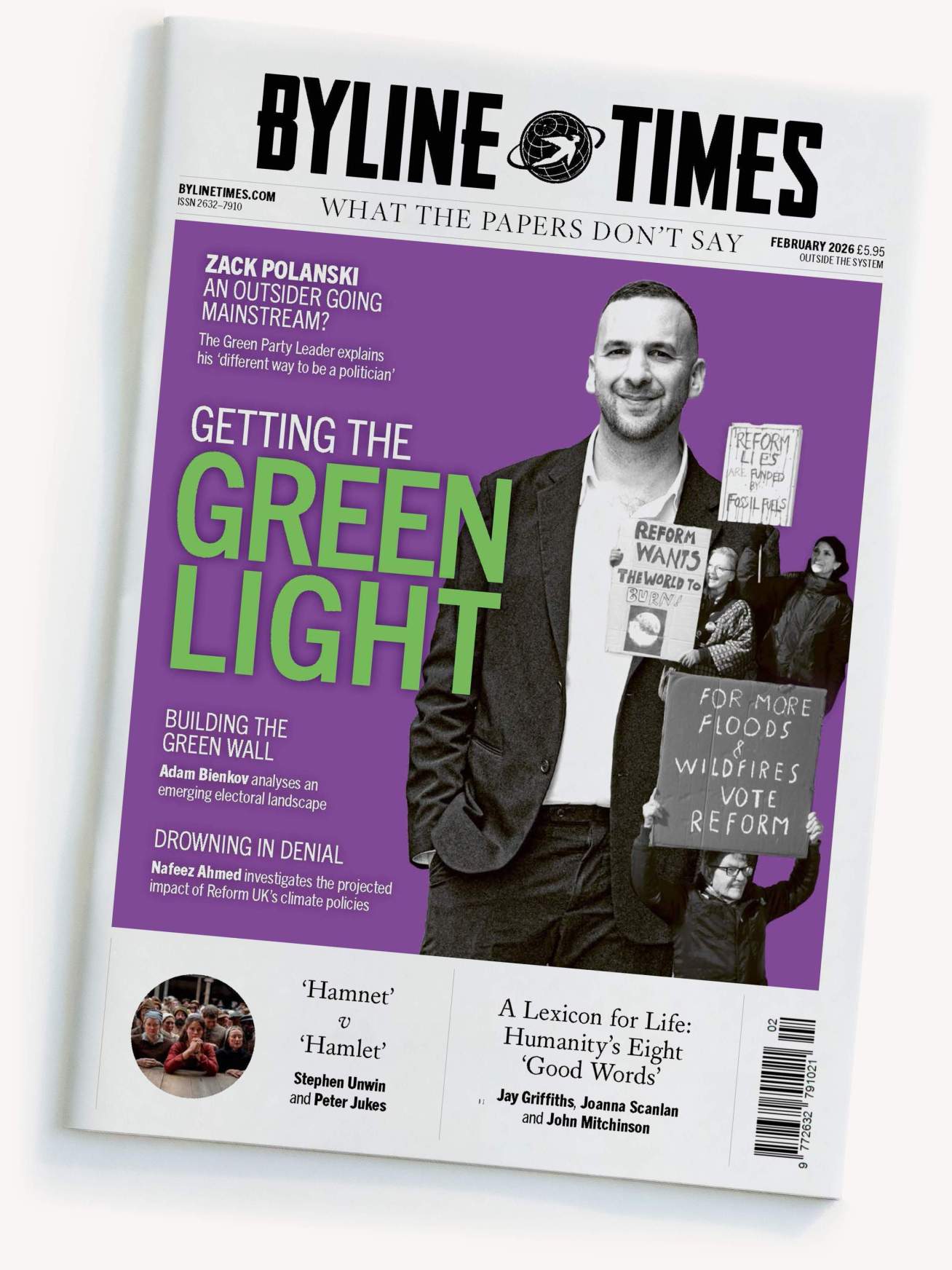
Read our Monthly Magazine
And support our mission to provide fearless stories about and outside the media system
The young woman who attended the interview had brown hair, her face permanently anxious. Her name was Petra, and she came from the Czech Republic, in the hope of working for me. This was in the early 2000s, some four years after the Community Care (Direct Payments) Act came into effect and meant that disabled people were able to opt for receiving funds directly.
It was a novel, and at times unsettling, experience – the autonomy bringing responsibility – and I found myself learning fast about the process of recruitment and interviewing.
This was pre-Brexit, four years after freedom of movement became enshrined in EU law, and supported the influx of many young women who applied for work within the broadest context of the care industry. It was an eye-opener.
Within the first months of my recruitment process for two personal assistants, the majority of applicants were not ‘native’ to the UK. The first 10 to apply included three ‘natives’ across a broad age spectrum (21-69), who came with a standard agency mentality. The remaining seven were from Poland, the Czech Republic, Hungary, and Zimbabwe.
To my mind, these seven were by far the better applicants. Some had a certain quality of pragmatism which I appreciated, and others an incredible work ethic. All of them were eager.
Unlike the ‘natives’, none of them had a patronising attitude, but were open to learning from me, and appreciated that I did indeed know my own needs (the primary focus of independent living).
Their experiences of working in the UK varied – with many sharing, as trust grew between us, horrific experiences of exploitation and abuse.
Darling Petra, so keen to do her best, was also working as a cleaner for several non-disabled clients – probably not all ‘on the books’, but that was hardly her fault, and certainly not my business. But it became so when I detected abuse that rose to what I knew was criminal behaviour and urged her to report incidents to the police, which she did not do out of fear of her abuser, and of losing her right to stay in the UK. She eventually decided to move back to the Czech Republic.
Precious, from Zimbabwe, was a giggler. I was in awe of how far she had travelled. She bathed and dressed me with care and laughter, which lessened the white person guilt I felt very aware of. We had a lot in common, including a love of knitting. When I went out with Precious, I noticed a sickening difference in how others interacted with her compared to Petra – it was clearly racially motivated.
Then there was Gergana, a striking young woman from Bulgaria interested in social work and excited by the growing activism coming from the UK’s disabled community.
There are numerous factors that make the type of work I offer appealing to these young women who are prepared to travel so far – and, in many cases, keep stoical in the face of the abuse and outright racism that coming to the UK sadly entails.
Still, the reality is that there remains the chance of a higher standard of living here, with a number of my PAs pointing out that to work in the UK care industry means better earnings, while the home-grown ‘natives’ balk at pay that scarcely scrapes above national minimum wage. Many of my own PAs also feel they gain insight and particular skills from working in the UK, despite evidence of exploitation within the more traditional agency work structures.
These young women can be emotionally scarred, with stories that remain shocking, if familiar. Foreign workers being lured into modern slavery traps – passports ‘kept safe’, meaning withheld; ‘guaranteed accommodation’ turning out to be little more than cramped house shares in atrocious conditions.
And now here we are today, in this cesspit of hate stirred up by the likes of Reform UK Leader Nigel Farage and far-right convicted criminal Stephen Yaxley-Lennon (‘Tommy Robinson’). Farage’s party has said it would abolish indefinite leave to remain for non-citizens – which includes who?
My long-employed and hard-working ‘foreign’ PAs. The incredible ‘foreign’ NHS consultants who saved my life. The construction workers who install dropped kerbs so wheelchair users like me can access pavements.
ENJOYING THIS ARTICLE? HELP US TO PRODUCE MORE
Receive the monthly Byline Times newspaper and help to support fearless, independent journalism that breaks stories, shapes the agenda and holds power to account.
We’re not funded by a billionaire oligarch or an offshore hedge-fund. We rely on our readers to fund our journalism. If you like what we do, please subscribe.
Politicians in general – and the right-wing ones in particular – rarely have a clue of the realities of frontline work in the broader care industry (including in the NHS) and the so-called sneering ‘natives’ who don’t want to wipe the arse of their own aging parents, let alone a succession of anonymous, scared strangers.
My own 25 plus years’ experience, underpinned by views from thousands like me, demonstrates why we are utterly reliant on immigrant workers – those who are able to stomach the worst of Western European privilege down into the depths of racial hatred.
It ties in to efforts to divide and conquer among disabled people, who are also drawn to the right with persistent mutterings of ‘those foreigners’ taking disabled ‘native’ people’s social housing, upping waiting lists that are already interminable; of ‘illegals’ flooding our social services.
Keir Starmer’s Government pushes this trope, rather than facing up to its reneged election promises, while avoiding taxing the tax-dodging ultra-wealthy. How hollow it feels to remember the disabled community’s #WeDemand action protest at Parliament Square last July.
The right-wing not only stir up hate, but in the current political climate, feel emboldened to push their message further with the latest regurgitation in Reform’s statements that look at challenging every immigrant’s right to be here.
Their current amplification sickens and scares me.
All names have been changed to protect privacy
Penny Pepper is an award-winning author, poet, and disabled activist

